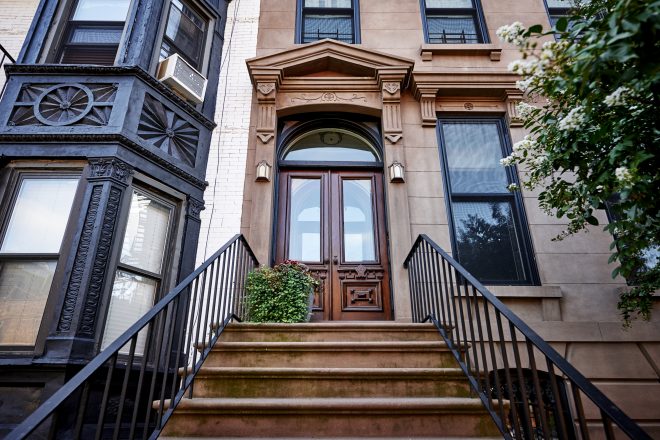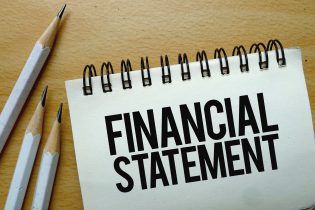What Is a Sponsor Unit in NYC Real Estate?

What is a sponsor unit? While browsing NYC real estate listings, you may run across this description, particularly when looking at new developments. These rare finds come with some great perks—like lower prices and easier application processes. Sounds good, right? On this page, we will walk you through everything you need to know about buying a sponsor unit in a New York City condo or co-op.
Table of Contents
What Is a Sponsor Unit?
A sponsor unit is a type of apartment unit, typically found in condominiums (condos) and co-ops. What distinguishes a sponsor unit from other apartments is that they have never been sold before. So, instead of buying your new apartment from the prior owner, you are buying it from the original developer or corporation who made the building.
There are two types of sponsor units you may encounter while browsing real estate in NYC: condo sponsor units and co-op sponsor units. Both unit types come with their benefits, and their drawbacks, so read more about them here on New Dev Rev to decide which is right for you.
Sponsor Units in Condos
Condos are the more common of the two types of sponsor units. They are great options for buyers who want the freedom and independence of a condo and the up-to-date renovations of a new development.
What is a Condo?

A condo is an apartment that you purchase from the building owner or developer. You are buying the real property when you buy a condo, so you own your apartment’s space, as well as a portion of the common space in the building.
By buying a condo, you will have more freedom and control over how you use your space than if you bought a unit in a co-op. You will not have to worry about getting things approved by a co-op board, and you can do what you see fit with your own property (as long as you follow your building’s rules).
Condos also have an appealingly straight-forward buying process compared to co-ops, since you do not have to go through a lengthy application procedure filled with interviews, financial disclosures, and more.
Additionally, you can rent out your apartment if you would like, which is usually not allowed at a co-op. This makes condos a great investment or second apartment for people looking to maintain a property in the city without living in it full time. However, this is a double edged sword.
Since condos can be rented out and do not have as long and involved of an approval process, you may be competing with buyers who plan to use the condo as an investment instead of a living space. This can make prices even more competitive than average. Add in the fact that condos are more expensive on average than co-ops–since they tend to be newer and have more amenities–and you could be looking at a pretty hefty price tag for your new home. But for those who can make it work financially, condos can be a wonderful oasis in busy New York City.
How an Apartment Becomes a Sponsor Unit in a Condo
In condos, sponsor units are typically owned by the original developer who built the apartments. These are usually brand-new apartment units that have never been lived in before. You will not have to worry about expensive and time-consuming renovations, since everything in your apartment will be up-to-date and freshly built.
Sponsor Units in Co-ops
Sponsor units in co-ops can be great options for buyers looking to take advantage of the lower prices of a co-op without the added difficulty of interviewing with a co-op board. However, once you buy your sponsor unit, you will need to abide by the co-op board’s rules and regulations regardless.
What is a Co-op?

A co-op is an apartment building owned by a corporation. When you purchase a unit in a co-op, you are buying shares of that corporation instead of buying the real property itself. These shares allow you to live on the property, and the number of shares you own corresponds with the size of your apartment. Most apartment units in NYC are co-ops, and they tend to be less expensive on average than condos.
Co-ops typically have a much more extensive and difficult process for applying and purchasing an apartment unit. Background checks, lengthy interviews, and in-depth financial disclosures are all par for the course with co-op applications. Even if you manage to jump through all of these hoops, the co-op board can still refuse to sell to you for any reason.
However, if you are lucky enough to find a sponsor unit in a co-op, you can avoid much of this hassle. Since you are buying from the original sponsor of the apartment unit, not from the co-op board, you can bypass the typical co-op application process altogether and purchase your new apartment as if you were buying a condo.
How an Apartment Becomes a Sponsor Unit in a Co-op
If a rental apartment building makes the shift to become a co-op, then some of its apartment units may become sponsor units. This happens when a renter, for whatever reason, decides to continue renting their apartment instead of buying during the building’s conversion. This is particularly common in buildings that were rent stabilized before being converted to co-ops. When the renter leaves the building, then that unit is still owned by the original sponsor who can then sell it to you.
Since you are buying directly from the original owner, you can skip the co-op board interview. The process of buying a sponsor unit in a co-op is much more streamlined than buying a resale unit. Combined with the generally lower prices of co-op units, it is no wonder the co-op units are so coveted on the NYC real estate market.
However, keep in mind that once you buy the unit, you will still need to follow all of the co-ops rules. You are still only the owner of shares in your building, not of your apartment itself. So while the buying process might feel like you are purchasing a condo, the living experience will be that of a co-op.
How to Know if a Sponsor Unit is Right for You
All of this may sound too good to be true, but there are some complications to consider before purchasing a sponsor unit. Like with all NYC real estate purchases, there are the benefits and drawbacks of buying a sponsor unit.

Pros of NYC Sponsor Units
Overall, sponsor units tend to be more affordable than resale units. You can benefit financially from lower down payments and less stringent financial requirements than that which come with buying a traditional co-op apartment at resale.
As we said before, by buying a co-op sponsor unit, you are skipping the frustration and uncertainty of going through a co-op board. This can make the whole home buying experience less stressful, so you can spend less time feeling uncertain, and more time getting excited about your new apartment.
Cons of NYC Sponsor Units

When you purchase a resale apartment unit, usually the seller is responsible for the transfer tax. This is particularly helpful given that the buyer tends to be responsible for some other closing costs like the NYC mansion tax on homes worth over $1 million.
However, since you are buying directly from the original owner of the building, the burden of both of these taxes may be shifted onto you. Developers have been known to refuse to pay the transfer tax, leaving the buyer to bear the brunt of the closing costs.
So, be sure to keep the potentially higher closing costs of buying a sponsor unit in mind as you browse NYC real estate listings. With the help of your real estate agent, you may be able to negotiate for the sponsor to absorb this cost the way a reseller would. Be sure to speak with your agent about avoiding transfer tax on your new development sponsor unit.
When you buy a sponsor unit in a condo, you may also be purchasing the apartment before its construction or renovation is finished. This can add some uncertainty to your move-in depending on your specific situation. Ask the seller about construction timelines before purchasing so you can make any necessary preparations for your move.
Sponsor units in co-ops can also come with some tricky legal issues given the complications that can come from the transition from renting to owning. Have a trusted real estate attorney look over all of the paperwork to make sure that your purchase is fair and legitimate before you close.
Additionally, co-op sponsor units can need renovation since they have been previously occupied by renters. Watch out for terms like “estate condition” when shopping for your sponsor unit. This can indicate that you will need to put some TLC into your new apartment to get it up to your standards for move-in.
Find Sponsor Units in NYC
If you are interested in buying a sponsor unit, be sure to let your real estate agent know. They can let you know when these rare units pop up on the market so that you can act fast to buy your dream apartment. Also, you should keep an eye out for listings yourself. Some websites allow you to search by development type, including sponsor units.
A sponsor unit could be the perfect fit for all your apartment buying needs. Be sure to check in on our other articles here at New Dev Rev to learn more about what a sponsor unit is and how it fits into your home search.
- Categories:




